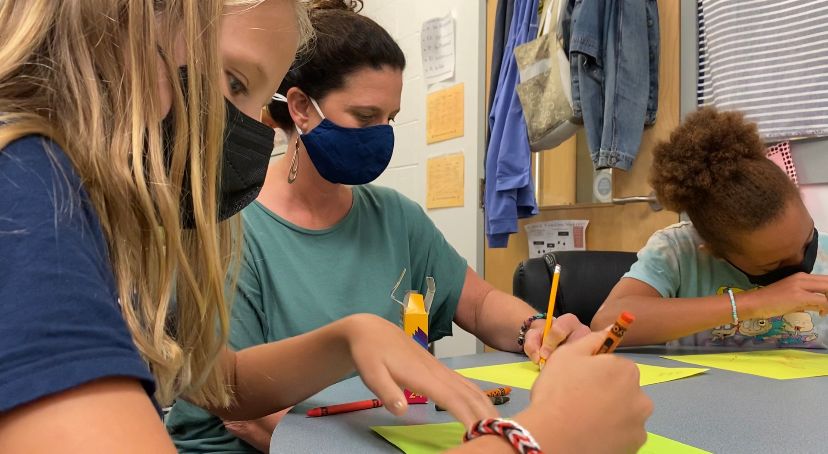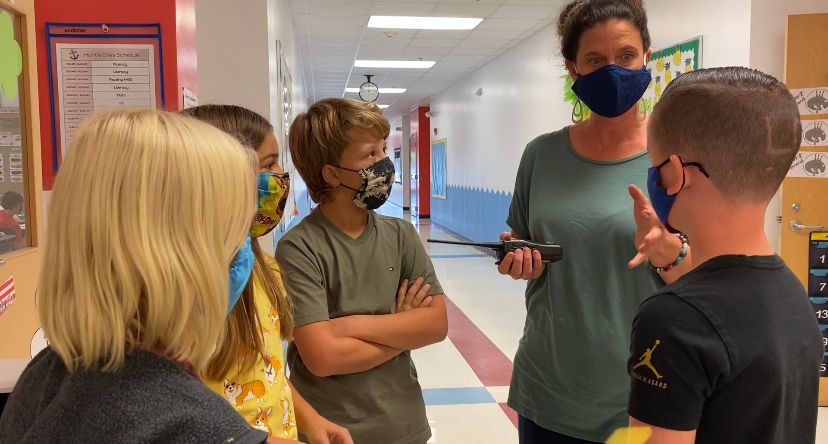WILMINGTON, N.C. — Cyberbullying is on the rise, and one school counselor blames the pandemic.
While technology can be a great tool for learning and was the main reason any learning took place last year, it can also open the doors to online threats. There are some telltale signs of dangerous and hurtful activity to be on the lookout for.
L1ght, an online organization that tracks online harrassment, said that cyberbullying cases were up 70% in just the first few months of the pandemic
School counselor Anna Weddington said cyberbullying can have devastating long-term effects.
Weddington said you should not respond to bullying messages, take screenshots of any cases of bullying and always tell a parent, school administrator and, in some cases, law enforcement.
The little things can help students grow, but they can also break them down. That’s true for learning, life at home and even their interactions with their peers. That’s why bullying, specifically cyberbullying, can be such a threat.
“The effects of cyberbullying can be absolutely as devastating as traditional bullying,” said Anna Weddington, a school counselor for Anderson Elementary in New Hanover County. “It can cause long-term effects, not just the negative effects toward someone’s self-esteem, but it can also impact how that person approaches relationships in the future and it can upset their idea that this world is a safe space.”
Weddington also said that the pandemic and remote learning have increased opportunities for cyberbullying.

“They have moved their social groups from face-to-face to online and social platforms. So what happens is that a lot of times they are communicating with people that they don’t know who they are, they don’t see, they may not even have a camera on them,” Weddington said. “And with it being social media, things can get said, pictures can get sent, websites can get accessed, and before they even know what’s happening they can get themselves into a very hurtful and dangerous situation.”
Weddington has dealt with many cases of bullying, and she said that there are some telltale signs to look out for.
“Bullying oftentimes will take away their friends, it’ll create friction in their friend group, and they find themselves isolated,” Weddington said. “A lot of times they don’t feel comfortable coming to school — they’re scared to come to school. You’ll see a drop in their grades, and we might see a change in their eating habits. As you can see, bullying impacts all areas of a student's life.”
One of the biggest signs that bullying is happening online isn’t always so obvious, but one you should always be on the lookout for.

“If a parent, or a caregiver, happens to walk in on their child, and they are clicking out of windows or trying to turn their phone off or shut their phone down, automatically grab their device, open it up, and see what they are accessing,” Weddington said. “It’s always very important to have your child’s password at all times, from the time they are young and they have their first device to the time they are seniors in high school. And I know some seniors would completely disagree with me, but they are minors, and they deserve the right to attend school without the threat of being bullied, and they deserve protection and the ability to access an education that’s free of harassment.”
Weddington said that if a student is in a bullying situation, school administrators should be notified, and if necessary, law enforcement members as well. You should not respond to bullying with messages and always take screenshots to help with investigations. However, the biggest way to help prevent cyberbullying is simply to educate yourself and students about cyber threats.
L1ght, an organization that tracks online harassment, said that within the first few months of the pandemic, there was a 70% increase in cyberbullying. They blame increased technology as well as isolation and even boredom.






